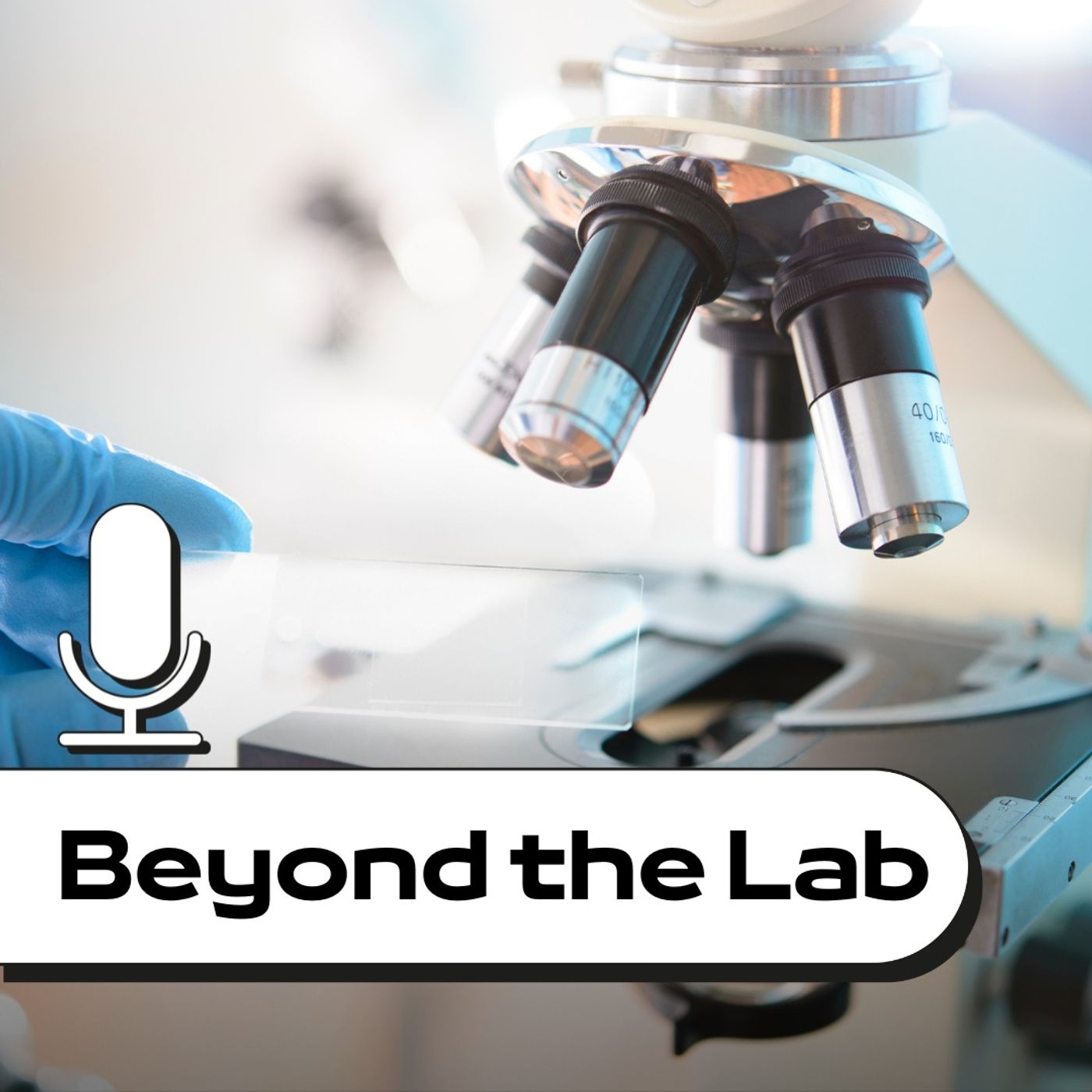Discover Beyond the lab: PhDIBINEM - Unibo
Beyond the lab: PhDIBINEM - Unibo

Beyond the lab: PhDIBINEM - Unibo
Author: Università di Bologna
Subscribed: 0Played: 0Subscribe
Share
© Copyright Università di Bologna
Description
The podcast features PhD students from the Department of Biomedical and Neuromotor Sciences discussing their research topics, exploring both clinical and preclinical fields, and delving into the application of new technologies in the biomedical area.
19 Episodes
Reverse
In this episode, we explore the fascinating world of biomarkers in cardiovascular and liver diseases.Biomarkers are measurable indicators of a biological state that help detect disease, assess its severity, and predict its progression.By understanding the molecular mechanisms underlying these conditions, we can move closer to more effective and personalized treatments.
In this episode, we dive into the complex journey of cancer treatment, from traditional therapies like chemotherapy to emerging options such as cancer vaccines and personalized approaches like CAR-T cell therapy.We discuss how cancer begins at the genetic level through mutations and how these changes disrupt normal cell functions.Understanding these processes is key to improving early detection and developing more effective, targeted interventions.
In this episode, we reflect on the evolving role of animal modelsin biomedical research, examining ethical concerns, current regulations, andemerging alternatives such as organoids and in silico approaches.
This episode explores the emerging field of sleep medicine through the lens of PhD research.Our guests delve into topics ranging from narcolepsy and neurodegeneration to pediatric sleep health and chronic orofacial pain.We examine the intersection of neuroscience, clinical care, and personal growth, highlighting both the challenges and rewards of pursuing a research career in this vital yet often overlooked area of healthcare.
In this episode, we explore the multifaceted world of epilepsy—its clinical diversity, genetic roots, and therapeutic challenges—throughinnovative research in biomarkers, in vitro models, EEG technologies, andpersonalized drug monitoring.
This episode present a novel MRI classification for lumbar stenosis integrating radiological findings with structured clinical outcomes, mechanoreceptor mapping in the sinus tarsi to optimize flatfoot correction, and biomechanical strategies for talar osteochondral lesion repair via calcaneal osteotomies. We highlight how advanced imaging, molecular insights, and biomechanic concepts converge to drive orthopedic innovation
This episode explores innovative strategies in joint preservation and regenerative orthopedic surgery, including meniscal allograft transplantation, corrective osteotomies, cartilage repair techniques, and total joint replacement.Focus is placed on biomechanical principles, clinical outcomes, and emerging approaches aimed at restoring joint function, preventing degeneration, and enhancing long-term quality of life.
In this episode, we delve into cutting-edge research on rare neurological and neurodegenerative disorders, exploring advanced molecular diagnostics, cellular and organoid models, and innovative strategies for understanding and treating complex brain and mitochondrial diseases
In this episode, we delve into cutting-edge research on neurodegenerative diseases, focusing on innovative diagnostic tools like biomarkers, stem cell-derived models, and brain organoids, with insights into Lewy Body Disease, Multiple Sclerosis, and Autosomal Dominant Leukodystrophy.
In this episode, we will discuss innovative approaches to neurological and neurodegenerative disorders, including advanced gene therapies, cellular modulators, in vitro models, brain circuit studies, and personalized technologies for motor rehabilitation
The podcast episode focused on the Innovations in Cancer Therapies, providing an overview of advanced approaches proposed by our PhD Students. In this episode we will explore their academic projects, the challenges and the therapeutic perspectives of each research. The students will share their personal experiences, discussing the innovation they bring forward and their efforts to make contributions to the advancements of cancer therapy
Finding a suitable therapy for tumors remains a major challenge. In recent years, the importance of mitochondria and the tumor microenvironment in cancer development and resistance has become clear, and in this episode, we will address this topic.
The podcast episode focuses on the experiences of PhD students specializing in Advanced Clinical and Technical Evaluation. It highlights their academic journeys, research challenges, and the practical application of their work in clinical and technical fields. Through personal insights, the students share their strategies for overcoming obstacles, fostering innovation, and contributing to advancements in healthcare and technology
Dental materials at the service of clinical practice. Dialogue on the importance of research on dental materials and how they can influence operative techniques in Conservative Dentistry, Prosthodontics and Surgery
This episode examines the EU’s AI Act, the transformative role of telemedicine, and the critical challenges of safeguarding patient data. We explore the legal compliance landscape, offering insights into the intersection of technology, ethics, and law in healthcare innovation
The intersection of neuroscience and technology offers transformative opportunities for addressing sensorimotor impairments, with advances in brain-machine interfaces, virtual reality, neurofeedback, and alternate neural pathway research driving innovations in assistive technologies that restore movement, enhance independence, and improve quality of life.
The integration of advanced radiological techniques, such as radiomics, quantitative CT, and advanced MRI sequences, represents a transformative approach in the study of biology and neuromotor sciences, offering new perspectives in radiological imaging and clinical practice.
New markers in precision hematology: circulating tumor cells and cell-free DNA as peripheral markers of hematological disease, new markers in flow cytometry to differentiate aberrant cells from normal ones and to study the tumor microenvironment, extracellular vesicles as risk markers for the disease.
Therapeutic resistance and the risks of progression remain an ongoing challenge for various hematological malignancies, including acute promyelocytic leukemia, chronic myeloproliferative neoplasms, myelodysplastic syndromes, and acute myeloid leukemia.





